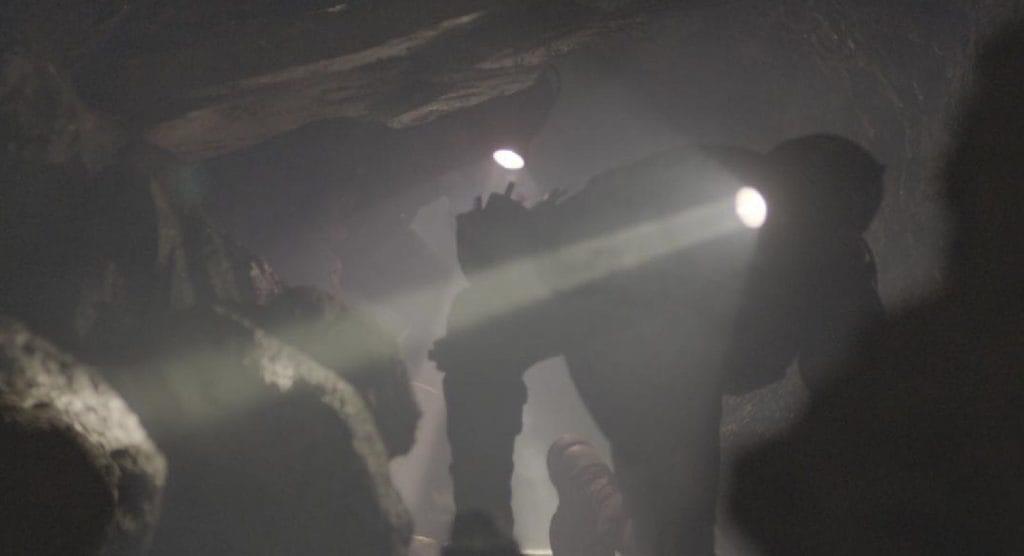
Robert Redford and Helen Mirren give solid performances in this steadily-paced (i.e. slow) drama about the abduction of retired entrepreneur Wayne Hayes (Redford) by a former employee, and the aftermath on his empty-nester wife Eileen (Mirren) and their grown children. The motives and methods of kidnapper Arnold Mack (played by Willem Dafoe) are questionable, and the plot is slight, but the film is saved by the resolve of Redford and Mirren and a novel, if not fully explored, novelistic narrative structure.
The movie unfolds in two parallel plotlines, cutting between the first day of Wayne’s abduction and the weeks following in which his family, enlisting the help of the authorities in the guise of Agent Fuller (Matt Craven), fret and console each other. “He’s a great man” who “inspires confidence,” Eileen assures Fuller, practically eulogizing her husband before knowing if he’s alive or dead.
As we watch Wayne and Arnold slog through the forest toward a cabin Arnold says sits atop a hill, Eileen begins her own journey, coming to terms with Wayne’s disappearance and the life he left behind. She discovers that an old fling of Wayne’s was not as far in the past as he swore to Eileen it was. “Your wife will pay and then you can go home,” Arnold tells Wayne, adding, “If she still wants you back.”
The screenplay, from first-time scribe Justin Haythe, wades through the Hayes family’s pool of emotions like Eileen going for a dip in their back yard. But Haythe barely breaks the surface, instead of just diving in. He and director Pieter Jan Brugge (an accomplished producer on his first trip at the helm) find an unhappy medium, never letting us go deep enough to penetrate Mirren’s highbrow exterior, nor broad enough to enjoy Wayne and Arnold’s uneasy relationship on their inexorable march up the hill.
Crosscutting between the two interrelated plotlines makes the film structurally interesting, but there are not enough points of intersection for the gimmick to work. At one point, the Hayeses receive Wayne’s reading glasses in the mail, one lens portentously cracked, though we saw Wayne using them just a scene earlier. There are too few of these twists of cause and effect, too few events to piece together, questions to answer, or mysteries to solve.
I’m not going to lie; there are half a dozen or so genuinely tense scenes that make “The Clearing” seem, if only for a moment, like a real thriller gussied up in psychological and emotional trappings. But then it releases its grip and returns to its by-the-book plotting on the way to a final act that is, discouragingly, every bit as restrained as the body of the film. As austere as the unflappable Mr. Redford, “The Clearing” is an enterprising but ultimately unsatisfying exercise that promises quite a lot, but delivers very little.
